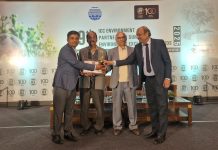Run-through
The QCOs, which are required accreditations provided by the Bureau of Indian Standards (BIS), increased compliance expenses for small companies, resulting in greater costs for customers and decreased competitiveness, particularly for micro, little and medium business (MSMEs) and export-oriented markets.
The Centre has actually withdrawn 14 BIS quality assurance orders (QCOs)covering essential chemical, polymer and fibre-based products, which are utilized to make completed items such as garments, fertilisers and a number of chemicals, streamlining the procedure of their imports and making them more affordable.
The QCOs, which are required accreditations offered by the Bureau of Indian Standards (BIS), increased compliance expenses for small companies, resulting in greater costs for customers and decreased competitiveness, specifically for micro, little and medium business (MSMEs) and export-oriented markets.
The rescinding of QCOs shows a significant shift towards market liberalisation and decreased regulative concern in a significant relief to the chemical, plastics and fabric sectors.
Worldwide, about 70% of the garments are used artificial fiber, and Indian exporters were not able to contend as they were required to purchase costly locally produced polyester fiber and yarn.
The chemicals and fertilisers ministry got rid of the QCOs on Wednesday, a relocation that would make the Chinese polyester fiber readily available to Indian garment and material producers at 20-25% lower rates than the domestic polyester, stated market executives.
The relocation will make sure basic material schedule, ease import restrictions and lower input expenses for downstream MSMEs in the product packaging, fabric and moulding sectors.
“The decision of rescinding QCO on polyester fibre and yarn is a big move to make India competitive in MMF (man-made fibre), which has 70% market share. With the already bagged FTAs (free trade agreements) and Europe negotiations on fast track, India looks set to become a global leader in apparel and textiles,” stated Sanjay Jain, previous chairman of the Confederation of Indian Textile Industry.
The Southern India Mills’ Association stated the effort would assist avoid the closure of numerous power loom systems that are on the brink of ending up being non-performing properties due to the non-availability and scarcity of needed fibers at competitive rates. Its chairman, Durai Palanisamy, stated, “Many domestic manufacturers of comfort wear and technical textile products had been struggling to procure fibres at globally competitive rates, resulting in a loss of market share built over decades. Exporters were losing confirmed orders, as foreign buyers often insisted on sourcing fibres from nominated international suppliers, putting Indian manufacturers at a disadvantage.”
Jain stated it was an enduring need of market to offer an equal opportunity to it as MMF makes up the bulk of the international market and India was rendered uncompetitive due to really high basic material costs, compared to those in China, Bangladesh and Vietnam.
Domestic customers are likewise anticipated to benefit as costs of polyester-based garments will lower. The main federal government had actually previously gotten rid of import responsibility on cotton, which is anticipated to lead to record import of cotton in 2025-26.
The international fabric and clothing sector is controlled by MMF, it is the other method around in India, where cotton controls. With restrictions on accessibility of cotton, the regional market was not growing, a plain contrast to rivals such as Bangladesh, Vietnam and Thailand.
“Polyester fibre and polyester yarn form most of the man-made fibre products, and hence, this measure by the authorities will contribute to the growth of the MMF segment in India,” stated Ashwin Chandran, chairman, Confederation of Indian Textile Industry.
India had actually enforced QCOs on manufactured fibers in between 2022 and 2023, while earlier an anti-dumping task on these fibers and their basic materials remained in location.
The elimination of the QCOs will make it simpler to get basic materials at worldwide competitive rates. “Coupled with the export package announced on November 12, the rescinding of these QCOs will act as a huge confidence-booster for the textile and apparel sector,” stated Chandran.
The Confederation of Indian Textile Industry has actually asked for the federal government to supply comparable relief on QCOs for viscose fiber and other cellulosic basic materials as India intends to develop a $350 billion fabric and fashion industry by 2030, with exports contributing $100 billion.
< meta material ="cms.article3" name ="cmsei-article3">




